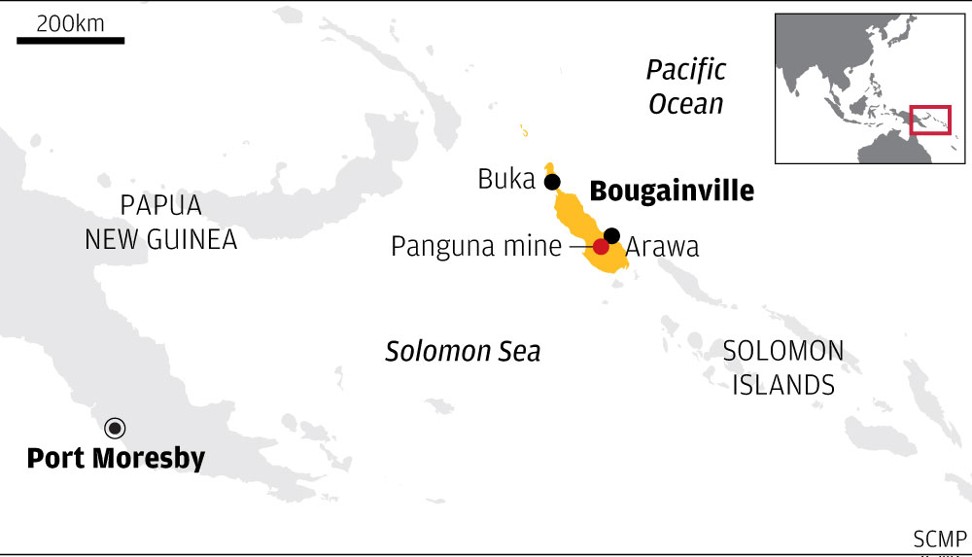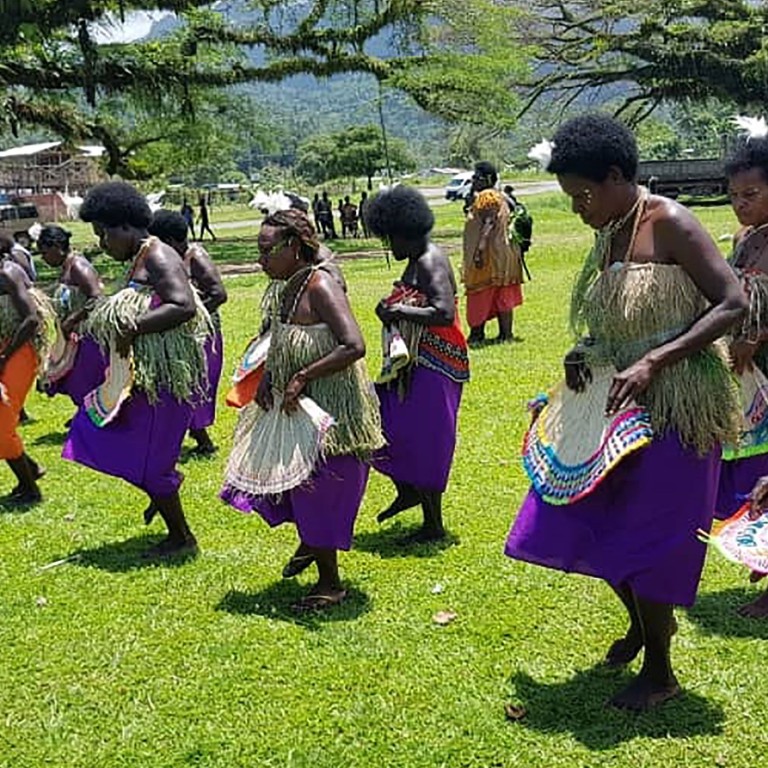
Why the US, China and Australia are watching as Bougainville votes
- Once torn apart by civil war, the autonomous region in Papua New Guinea kicks off a two-week independence referendum this weekend
- The vote takes place amid other bids for self-government in the region and geopolitical rivalry between the US and China
Is this the birth of the world’s newest country? That is up to the 300,000 residents of Bougainville, an autonomous region in Papua New Guinea (PNG), who go to the polls on Saturday to kick off a two-week independence referendum.
But Bougainville’s neighbours – such as Indonesia, which has staunchly rejected calls for self-determination in its easternmost regions of Papua and West Papua – are also watching closely.
Natalie Sambhi, the director of Verve Research, an Australian civilian-military relations research collective, said: “Bougainville’s vote could give further encouragement in the Papuan provinces to push for their own, particularly if a population of just 300,000 can gain successful independence.”
Bal Kama, a constitutional law specialist at ANU College of Law in Canberra, said: “The outcome of the referendum will have political implications beyond PNG. It has the potential to inspire new and ongoing bids for self-government in other parts of the Pacific.”
Bougainville was PNG’s wealthiest region before its Panguna mine – one of the world’s largest deposits of copper and gold, which was recently valued at US$58 billion – was shuttered in 1989.
Disagreements over the mine’s control, profits and environmental impact were a primary flashpoint in the conflict between the PNG Defence Force and Bougainville Revolutionary Army, which saw an estimated 15,000 deaths in the 1988-1998 civil war – the bloodiest fighting in the Pacific since World War II.
The outcome of the referendum will have political implications beyond PNG
Experts say that regardless of the outcome, successfully holding the independence vote – for which polls are open until December 7 – will represent a vital step forward for a society so long divided by conflict.
As part of the peace process, the PNG government agreed to the referendum and contributed US$5.4 million to it, while the US, Australia, New Zealand and Japan last month helped plug a US$2 million funding gap.
China was not invited to contribute, a source told Reuters, explaining that the West wanted to limit China’s engagement with what could soon be the world’s newest nation.
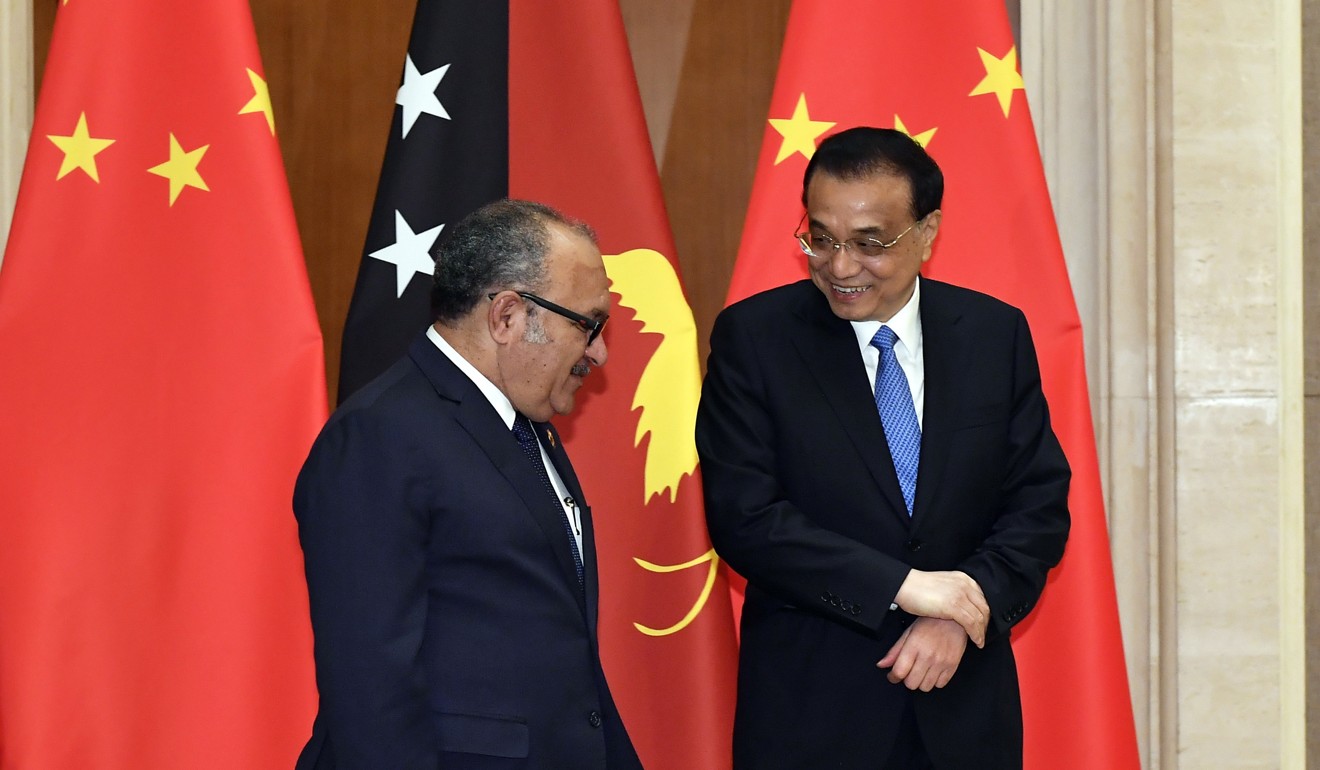
COMPETING INTERESTS
The PNG government will need to give final approval even if the residents of Bougainville vote yes to independence, but Prime Minister James Marape in August reiterated his administration’s clear preference to give Bougainville greater autonomy.
Kama from the ANU College of Law said this could mean giving Bougainville greater control over foreign aid, international trade, taxation and labour laws.
Is Chinese support for Pacific nations shaping their stance on West Papua?
Verve Research’s Sambhi said Indonesia would be on the lookout for additional security threats on top of the cost and logistics of restructuring its defence forces, particularly as it moves its capital from Jakarta to East Kalimantan.
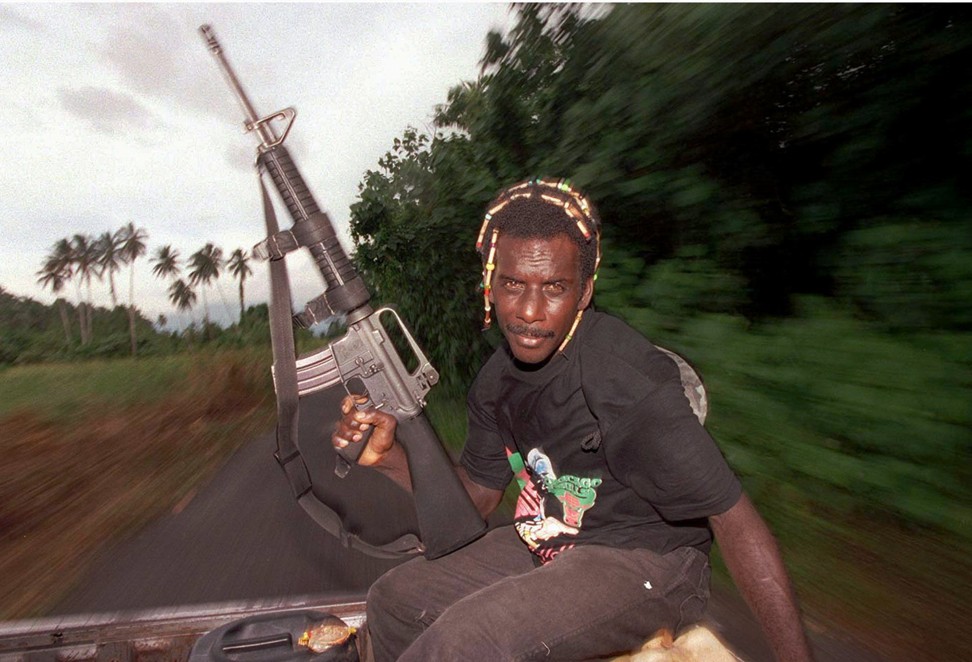
Canberra is also paying close attention to the possibility of unrest. If violence were to break out over Bougainville’s vote, it would be a matter of “when, not if” Australia would offer military or police assistance, Sambhi added.
Australia has long been the biggest source of aid and investment in the Pacific, but recent Australian aid data shows that the current aid budget is at the lowest level in the country’s history, at just 0.21 per cent of gross national income.
East Timor’s China friendship won’t compromise its national interests: foreign minister
Jian Zhang, an associate professor at UNSW Canberra at the Australia Defence Force Academy, said Beijing was PNG’s largest and most important relationship in the Pacific.
Not many other places have resources like Bougainville. China will have great interest in investing there
He pointed out that Beijing did not take a stand on the domestic affairs of its partner nations, but said if Bougainville became independent, China “would certainly try to establish diplomatic ties based on aid and investment”.
Indeed, analysts say the Chinese leadership is focused on two objectives in its dealings with the Pacific Islands – ensuring its economic interests are not interrupted, and relieving Taiwan, which Beijing regards as a breakaway province, of its remaining diplomatic allies.
China courts Pacific island states in pursuit of ‘foothold’ as US risks losing influence, Rand report warns
PNG’s neighbouring Solomon Islands has received a wave of Chinese-backed investment proposals since September, when it dropped its long-standing diplomatic recognition of Taiwan in favour of ties with Beijing.
“The Chinese government regards Pacific Island countries as part of the greater periphery in its diplomacy and the southern extension of the Belt and Road Initiative,” wrote Denghua Zhang, a research fellow at Australia National University’s Department of Pacific Affairs, in a November 11 report.
“The China-Oceania-South Pacific blue economic passage is seen as part of what is termed ‘the 21st century maritime Silk Road’ that will travel southwards from the South China Sea into the Pacific.”
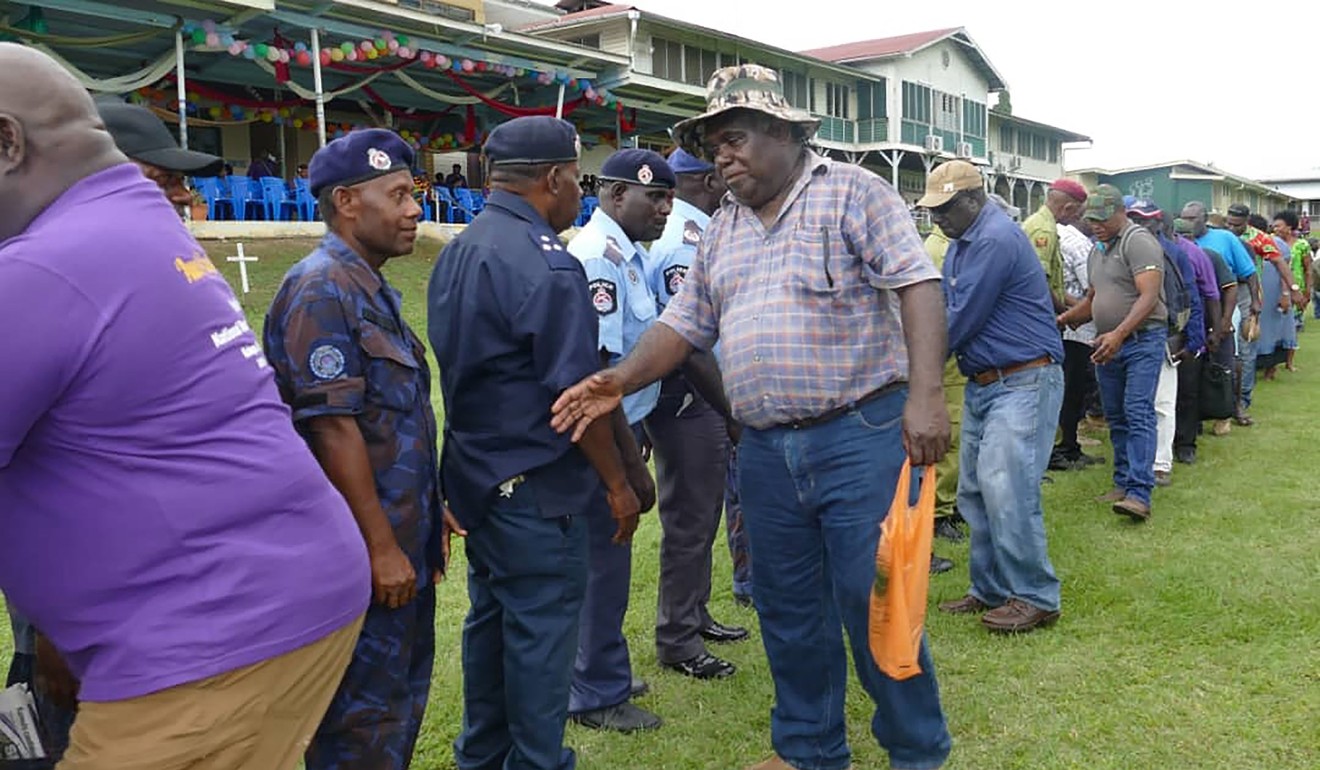
Jian Zhang said China had taken an increasing interest in the strategic significance of the South Pacific for the operation and movement of its navy. He added: “Not many other places have resources like Bougainville. China will have great interest in investing there.”
The US has retained territories and defence relationships in the Pacific Islands since World War II, formerly using Bougainville as a base. The region remains a crucial strategic theatre for Washington, where its long-standing security presence is now confronted by Beijing’s rising military clout.
The larger question is whether Bougainville itself is ready for independence
To this end, the US is also paying attention to another vote in the region – the Republic of the Marshall Islands went to the polls on November 18, raising concerns that a new leader who favours Beijing could take office.
While the Marshall Islands is a sovereign nation, it is also one of four states which retain close ties with Washington through the Compact of Free Association, which allows its citizens to live and work in the US without visa requirements, in exchange for exclusive defence access to its waters and airspace.
If an opposition leader unseats President Hilda Heine and decides to leave the compact, experts suggest the US will lose a key defence partnership and Taiwan could lose yet another Pacific ally.
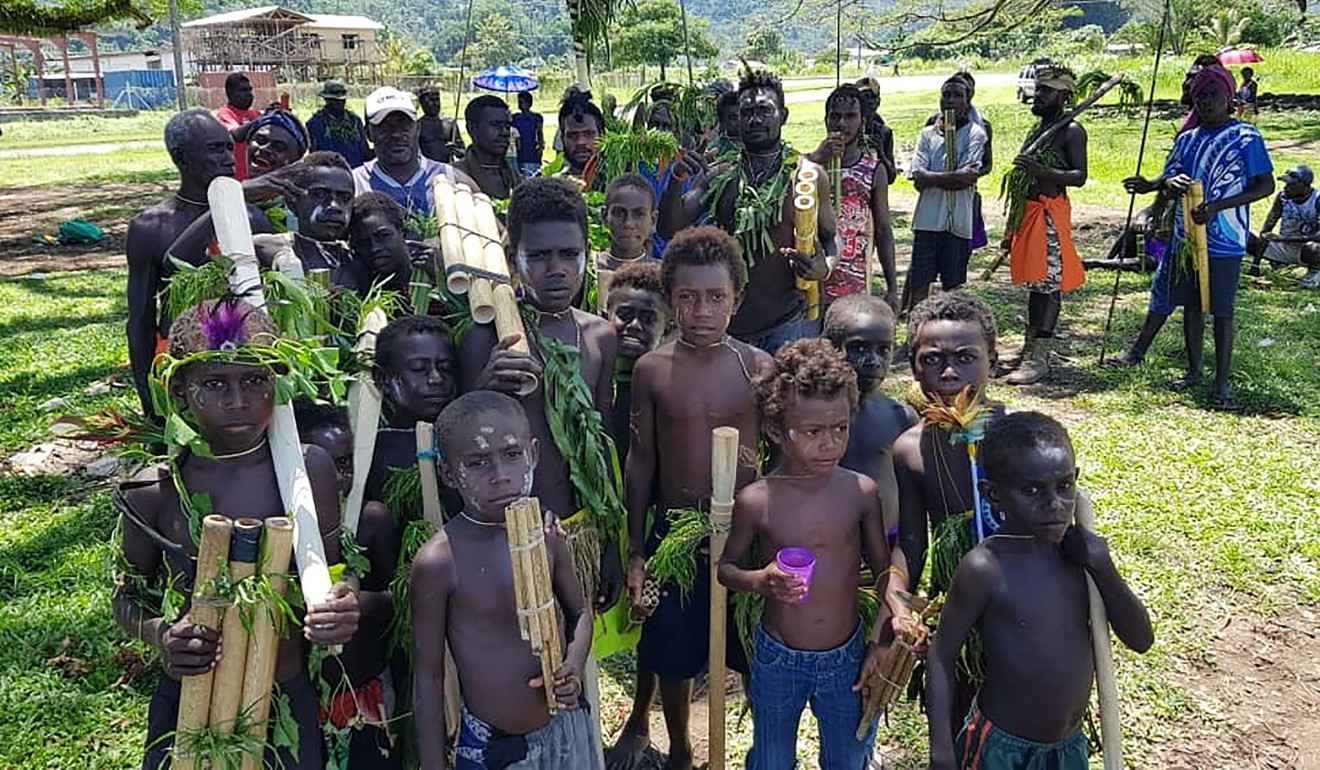
‘NO ALTERNATIVE’
Observers suggest voters are overwhelmingly expected to choose independence, fuelling anxieties for Bougainville’s prospects as a country.
While the referendum was important, it was just one part of the process laid out under the 2001 Peace Agreement, said former Australian diplomat James Batley, who served in PNG and will be in Bougainville as an election observer.
Regardless of the outcome of the vote, the next step would be consultation between the Bougainville and PNG governments.
Analysts warn that Bougainville’s capacity to support itself economically is uncertain at best.
Kama at ANU said there were already indications China would be a key development partner in an independent Bougainville.
“Bougainville’s leaders seem to have good working relations with China and will be keen to tap into China’s initiatives like the Belt and Road,” he said.
US-China battle for dominance extends across Pacific, above and below the sea
Bougainville’s other potential sources of income include fisheries, cocoa and the production of high-value marine products like dried sea cucumber. The region is presently heavily dependent on aid from PNG and Australia to support its economy.
Despite its wealth of resources, analysts estimate that reopening the Panguna mine requires US$4 billion in construction costs, and risks traversing the same fault lines over land ownership, profits and environmental concerns that precipitated the civil war 30 years ago.
“The larger question is whether Bougainville itself is ready for independence,” wrote Ben Bohane, a Vanuatu-based Australian documentarian, in an analysis for the Lowy Institute. “The short answer is no, but most Bougainvilleans see no alternative to independence, despite the obstacles.” ■


